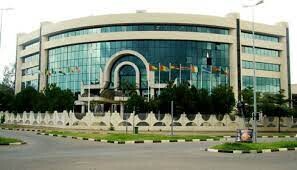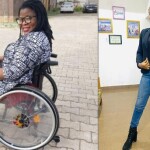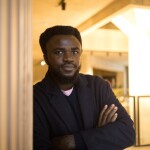Years after Nigeria set up its disability commission, its ECOWAS neighbors are still being urged to do the same following the April 2022 resolution on disability inclusion in the regional bloc.
ECOWAS Commission President Omar Alieu Touray made the plea at the capacity building workshop for PWDs in Abuja on Feb 8—as part of activities to observe the International Day of Disabled Persons.
Represented by the ECOWAS Director of Humanitarian and Social Affairs Sintiki Tarfa Ugbe, the commission’s president said inclusion should permeate every sphere of society.
According to him, the experts who validated disability inclusion across West Africa outlined a number of actions the commission and its 15 members will take to entrench inclusion.
Nigeria set up its National Commission for Person With Disabilities (NCPWD) in Feb, 2019 following President Muhammadu Buhari’s assent to the Discrimination Act 2018. Its section 31 provides for the establishment of a commission to promote, protect, and prioritize the rights of PWDs in Nigeria.
“It is our hope that we jointly find solutions and innovations for a more inclusive society. The multidimensional and multilayered nature of disability demands collective responsibility and accountability,” Touray said while urging the other member states.
“The Commission, therefore, calls upon all stakeholders and government ministries, agencies and development partners, to work together to make a positive difference in the lives of persons with disabilities and their families.”
Nigeria’s Women Affairs Minister Pauline Tallen, who attended the workshop, .said inclusion is central to the 2030 Agenda for Sustainable Development.
“The commitment to realizing the rights of persons with disabilities is not only a matter of justice but an investment in a common future.”
The NCPWD is a body under the Humanitarian Affairs Ministry, and it is being managed by Executive Secretary James D. Lalu’s leadership for now.
Experts in disability fields have criticized the subsuming of the commission under the ministry.
Akinola Opeolu, a former chairman of the National Association of the Blind (Lagos), said the original design was to put the commission under the presidency.
“With this current arrangement, any time the interest of the minister conflict with that of the PWDs, the interest of the PWDs suffers,” the assistive technology expert told ER in an interview.
Other countries in the developed worlds, he said, make such commission free-standing so it can demand accountability from other ministries in matters relating to disabilities.
ECOWAS members looking to Nigeria for direction might also adopt its approach—of appending their disability commissions to ministries.







